Energy Analysis and Sustainability
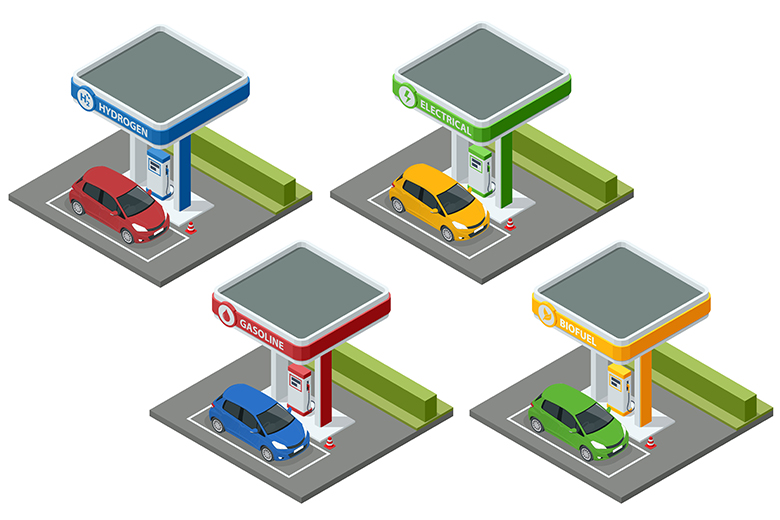
The U.S. DOT Volpe Center’s Energy Analysis and Sustainability Division focuses on the intersection between energy and transportation in alignment with U.S. DOT priorities.
Our team works with transportation leaders to support innovative research, demonstration, and deployment of all transportation energy sources, and reduce transportation energy costs with the goal of advancing toward a safer, resilient, and more efficient transportation system.
We provide impactful transportation analyses and solutions for sponsors such as FAA, MARAD, and FHWA, other federal agencies including the Department of Energy (DOE) and Department of Defense (DOD), and state, city, and private sector entities such as New York City and the Santos Family Foundation.
Our Capabilities
Applied Data Science
- Analysis and statistical modeling of transportation, environmental, and human resources data (including “big data”) for safety, efficiency and cost savings, resilience, and performance monitoring
- Custom modeling tools and interactive data dashboards with decision support features
- Natural hazard analyses to develop resilience assessment tools
- Application of artificial intelligence, particularly machine learning and natural language processing, to enhance data tools and analyses
- Scenario analyses for multimodal supply chains and resilient infrastructure options
- Federal building energy cost reduction analyses
Energy Analysis, Science, and Engineering
- Technology analysis to support energy cost reductions, resilience, and local job creation
- Engineering assessments including technology readiness level evaluations and failure mode and effects, all aimed to increase transportation safety
- Analysis expertise, trade-off assessments, and deployment experience
- Micro-grid and renewable energy expertise, facility and transportation operations energy use, energy cost reduction, and procurement assistance
- Engineering support to develop technology deployment requirements and government cost estimates
- Impact analyses of infrastructure technology on employment, commuting, and freight operations
Safety and Security Assessments
- All-hazard analyses including natural hazards, crash hazards, multimodal conflicts, technology hazards, and military hazards
- Combined transportation technology assessments for safety, efficiency, and performance effects
- Comprehensive program evaluations, risk assessments, and mitigation strategies
Spotlight On Our Recent Work
Tools
Our division has developed and deployed transportation infrastructure and flow analysis tools to support transportation practitioner scenario exploration.
- The Freight and Fuel Transportation Optimization Tool (FTOT) for supply chain scenario optimization, infrastructure scenario exploration, and resilience analyses.
- The Resilience and Disaster Recovery (RDR) Tool Suite to estimate resilient infrastructure return-on-investment, including benefit-cost analysis.
- The VIEW vehicle blind zone tool for relative assessment of the blind zones of vehicles, relative potential risk to vulnerable road users, and a crowdsourced, scalable database.
Energy Source Evaluation and Deployment
Our division works with a range of sponsors and public-private partnerships in the areas of fuels and energy source evaluation, fleet transition planning, alternative fuel corridor designations for fleets, and technical facilitation and training throughout the country for advanced technology deployments. Examples include:
- Supporting the Joint Office of Energy and Transportation to support deployment of enhanced physical infrastructure throughout the U.S.
- Supporting DOE’s Clean Cities Program with technical facilitation and training throughout the country for fuel and advanced technology vehicle and infrastructure deployments
- Supporting FHWA in implementing the Alternative Fuel Corridor Designation Initiative
- Supporting NYC Department of Citywide Administrative Services and City of Cambridge in in technical and market feasibility assessment, operational analysis, and developing a Clean Fleet Transition Plan
Safer Streets
Our division works with federal, state, local, and nonprofit sponsors and partners on innovative approaches to improving safety for Vulnerable Road Users (VRUs) engaged in active transportation, including through development of novel tools, technology and market assessment, and support for early deployment. Examples include:
- Supporting the Safe Fleet Transition Plan technology assessment, program development, and deployment support for multiple New York City departments for NYC Vision Zero
- Supporting Santos Family Foundation in assessing vehicle blind zone risks to vulnerable road users—from a driver’s seat in 10 minutes, using only a smart phone, tape measure, and five-foot pole—and assessing potential countermeasures to address large vehicle risks for VRUs
- Developing urban freight analyses for various sponsors, including FHWA, City of Boston, Together for Safer Roads, and the National Association of City Transportation Officials
Energy Cost Reduction and Sustainability
Our division works with several sponsors to provide technical and programmatic support for federal energy cost reduction through efficiency improvements and sustainability requirements that apply to U.S. DOT facilities and operational assets under the Energy Act of 2020; the Energy Independence and Security Act of 2007 (EISA); the Energy Policy Act of 2005 (EPAct); the National Energy Conservation Policy Act of 1978 (NECPA), as amended; and the Federal Buildings Personnel Training Act of 2010 (FBPTA). Examples include:
- Ensuring that the Department and its Operating Administrations meet U.S. DOT orders and applicable federal sustainability requirements for U.S. DOT owned and operated buildings
- Leading program development and implementation to reduce costs to operate federal buildings and increase resilience to all forms of threats
- Performing data analysis and performance reporting for federal statutorily required resilience and sustainability requirements.
Meet Our Team
Selected staff biographies.
David A. Arthur, PE

Chief of Energy Analysis and Sustainability
MEng Automotive Engineering, University of Michigan
BS Mechanical Engineering, Pennsylvania State University
As chief of the U.S. DOT Volpe Center’s Energy Analysis and Sustainability Division, David A. Arthur manages more than two dozen highly specialized technical research staff leading or supporting projects in sources, uses, and assurance of transportation energy. He is also a Capability Maturity Model Integration (CMMI) organizational process leader for the U.S. DOT Volpe Center and the lean process improvement lead for its Business Enterprise Office.
Arthur provided support to the U.S. Air Force, where the U.S. DOT Volpe Center created a decision-making tool that analyzed numerous energy architectures and strategies for Beale Air Force Base. He also provided similar support to the Hampton Roads region, where the U.S. DOT Volpe Center developed an economic model for assessing impacts from recurrent flooding and extreme weather to the transportation infrastructure.
In addition to overseeing resilience projects, Arthur provides automotive engineering expertise to NHTSA-sponsored projects on automotive safety and software. He has co-authored numerous publications—including reports on wireless power transfer and the functional safety of steer-by-wire, brake/traction, and electric power-steering systems—and has moderated panels including a session at a past Conference on Electric Roads and Vehicles.
Prior to joining the U.S. DOT Volpe Center in 2012, Arthur spent 14 years in the private sector, where he was an inventor or co-inventor on 23 patents in the areas of hydrogen fuel cells and battery hybridization strategies. He was also a program chief engineer at United Technologies for an automotive fuel cell program and a stationary flow battery energy storage program for micro-grids. At General Motors, Arthur spent 11 years in various roles, including as lead systems engineer on the fuel cell program, as a regenerative braking engineer for the EV1 electric vehicle, and as a chassis engineer for the Precept hybrid-electric vehicle.
View David Arthur’s LinkedIn profile.
Andrew Breck

Environmental Protection Specialist
MF, Yale University School of Forestry and Environmental Studies
BA, East Asian Studies, Wesleyan University
Andrew Breck joined the U.S. DOT Volpe Center in 2011. He analyzes data to support strategic decisions, plans, and policies for a variety of sponsors. Breck’s work addresses diverse topics, including sustainability, energy, safety, and asset management. He currently works primarily on high-performance buildings and other topics for the Maritime Administration and the Office of the Secretary of Transportation, electric vehicles for federal land management agencies, safe and clean fleets for the New York City Department of Citywide Administrative Services, and transportation applications of machine learning and other forms of artificial intelligence for FHWA.
Stephen Costa
Technical Analyst
MA Energy and Environmental Analysis, Boston University
BS Environmental Science, University of Massachusetts Amherst
Stephen Costa supports a variety of projects focused on the role of transportation as both an element of energy supply and end-use. These include interagency collaborations to advance the production, transport, and distribution of alternative fuels, as well as the expansion of alternative fuel infrastructure and end-use adoption of alternative fuel and advanced energy technology vehicles. His recent efforts have assisted programs and initiatives at U.S. DOT’s Office of the Assistant Secretary for Research and Technology (OST-R), DOE’s Vehicle Technologies and Bioenergy Technologies Offices, FHWA, and other DOT modal administrations and state agencies.
Before joining the U.S. DOT Volpe Center in 2006, Costa worked at DOE for more than six years. There he supported and led a range of energy efficiency and alternative fuel programs targeted at public and private partners in fleet management, building administration, and domestic manufacturing, as well as the public and consumers.
Costa was awarded a U.S. DOT Secretary’s Award for Excellence for his demonstrated leadership, breadth of knowledge, and extensive efforts in promoting Departmental initiatives on energy security and environmental stewardship in 2008.
View Stephen Costa’s LinkedIn profile.
Brennen Craig
General Engineer
BS Electrical Engineering Technology, Purdue University
Brennen Craig joined the U.S. DOT Volpe Center’s Energy Analysis and Sustainability Division in 2023. He provides electrical engineering support for various fleet electrification, implementation, and technical assistance projects for the U.S. Bureau of Reclamation, Joint Office of Energy and Transportation, U.S. Department of the Interior, and U.S. Forest Service.
Prior to joining the U.S. DOT Volpe Center, Craig was an electrical engineer for the U.S. Army Corps of Engineers providing design reviews, feasibility studies, and construction cost estimates for large military and civil works construction projects. Additionally, he supported the Energy Resilience and Conservation Investment Program through the design and construction of microgrids, renewable energy systems, energy storage systems, and EV infrastructure for military bases and installations.
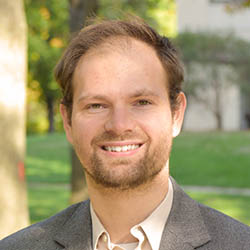 Alex Epstein
Alex Epstein
General Engineer
PhD Engineering Sciences, Harvard University
SM Applied Physics, Harvard University
BS Engineering, Olin College
Alexander K Epstein, PhD, PMP joined the U.S. DOT Volpe Center in 2011, where he leads transportation sustainability and vulnerable road user safety initiatives spanning local, state, and federal transportation agencies. He oversees research, analysis, and demonstration partnerships with fleets, industry, and nonprofits to assess the safety and sustainability benefits of improved vehicle design and technologies, and he leads or supports coordinated research in support of FMCSA, NHTSA, and other U.S. DOT operating administrations, linking local deployment with federal stakeholders and best practices. Epstein directly supports several Vision Zero initiatives to eliminate traffic fatalities.
Current focus areas include partnering with fleet operators to apply the Safe and Clean Fleet Transition Plan frameworks to objectively prioritize fleet safety and sustainability investments, creating public tools such as the VIEW app and research on vehicle design, including blind zone risk to vulnerable road users, intelligent speed assistance, and other emergent issues, and partnering with the Joint Office of Energy and Transportation to produce electric mobility charging infrastructure resources for rural, urban, and multifamily housing America.
He also established and since 2017 has led the U.S. DOT Volpe Center’s SCOPE capstone student advising program with the Olin College of Engineering and Santos Family Foundation.
Epstein is a two-time recipient of the U.S. DOT Secretary’s Award and has received the Federal Laboratory Consortium’s Excellence in Technology Transfer Award for his work introducing truck lateral protection devices across the U.S.
View Alexander Epstein’s LinkedIn profile.
Dan F.B. Flynn, PhD

Data Scientist
PhD Ecology, Evolution, and Environmental Biology, Columbia University
BA Biology, Oberlin College
Dan Flynn, PhD is a data scientist with 20 years of experience in quantitative research on sustainability, climate science, transportation safety, and environmental science. His research projects span across transportation modes, using statistical tools to derive insights from and create compelling visualizations of complex data sets.
Flynn works on resilience of transportation systems to natural hazards, scenario modeling of scenarios for transportation sustainability, roadway safety analysis, novel sources of infrastructure data, and the use of using AI and machine learning to enhance public sector transportation research. He works with multiple U.S. DOT administrations and federal agencies, supporting the Offices of the Undersecretary of Transportation for Research and Policy, ARPA-I, MARAD, FHWA, FMCSA, NOAA, and USGS.
Prior to joining the U.S. DOT Volpe Center, Flynn was a research scientist in sustainability and global change, working at Harvard University, the University of Zurich, and the Chinese Academy of Sciences. He has taught courses on environmental science, sustainable energy solutions, and data science solutions using open-source statistical programming languages.
Peter Herzig
Environmental Protection Specialist
MS Environmental Studies, Antioch University New England
BA Peace and Justice Studies, Tufts University
Peter Herzig joined the U.S. DOT Volpe Center in 2014 as a student intern and joined the Energy Analysis and Sustainability Division as an environmental protection specialist later that year. Since joining the division, he has provided technical and coordination support for the Commercial Aviation Alternative Fuels Initiative (CAAFI) as the program specialist. Herzig also provides geospatial analysis and project management support for a variety of transportation infrastructure projects. He is an active participant in the U.S. DOT Volpe Center’s Green Week, and he led the 2015 winning Innovation Challenge team that proposed a visualization and screening tool designed to help U.S. DOT and other agencies efficiently integrate national social and transportation data into planning and operations to ensure that transportation and other public services are available to users in all communities. Herzig also manages multiple projects through his role as a contracting officer’s representative.
Prior to joining the U.S. DOT Volpe Center, Herzig worked on several projects aimed at the corporate adoption of responsible business practices for a more sustainable global economy. He is a Marine Corps veteran, having served in Iraq as an intelligence analyst and a security specialist at the U.S. Embassies in Zambia, the Dominican Republic, and Turkey.
Kirby Ledvina

Kirby Ledvina
General Engineer
MS Civil and Environmental Engineering (Concentration in Systems Engineering), Massachusetts Institute of Technology
BS Management Science, BS Economics, Massachusetts Institute of Technology
Kirby Ledvina joined the U.S. DOT Volpe Center’s Energy Analysis and Sustainability Division in 2020.
Prior to the U.S. DOT Volpe Center, Ledvina was a graduate research assistant with the MIT Data Science Lab, where she designed and computationally tested customer-sharing schemes for delivery vehicle routing. Previously, she also supported research in environmental economics and policy as a member of the MIT Joint Program on the Science and Policy of Global Change.
Kristin C. Lewis, PhD
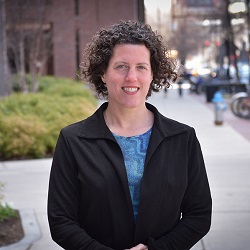
Principal Technical Advisor for Aviation Fuels and Resilient Supply Chains
PhD Organismic and Evolutionary Biology, Harvard University
BS Chemistry and Environmental Studies, Yale College
Kristin Lewis, PhD serves as part of our team of principal technical advisors who work across the Center to identify emerging transportation technologies, conduct analyses and assessments on topics of national significance, and explore new opportunities in response to evolving national concerns. She serves as the principal technical advisor for aviation fuels and resilient supply chains.
Read Kristin Lewis’s full bio.
Scott Lian

General Engineer
BS Mechanical Engineering Technology, Northeastern University
Scott Lian joined the U.S. DOT Volpe Center in 2003, supporting safety codes and standards development for hydrogen as a transportation fuel and subsequent research, demonstration, and deployment activities of hydrogen fuel cell vehicles, including the Hydrogen Fuel Cell Bus Program. Products include a Fuel Cell Bus Lifecycle Cost Model.
He provides ongoing technical support for the deployment of alternative fuels in public transportation fleets serving NPS, U.S. Fish and Wildlife Service (FWS), and state and local parks. Lian brings nearly two decades of expertise in vehicle technologies, fueling (or charging) systems, fleet operations, and safety. NPS support includes a technical analysis of alternative transit fleet fuels and transition strategies for battery-electric bus deployment at the Presidio National Historic Park, a guide for Alternative Transportation Systems – Vehicles and Supporting Infrastructure, and a feasibility analysis for new fleet maintenance infrastructure at Cape Cod National Seashore. For FWS, he led an evaluation of commercially available electric low-speed vehicle trams.
As technologies and mobility continue to progress, Lian is supporting OST-R by leading a U.S. DOT Volpe Center team in a cross-departmental collaborative research initiative with partners at DOE’s National Renewable Energy Laboratory (NREL), examining automated, connected, efficient, and shared mobility systems while identifying gaps in research, metrics, and data. The project has forged strong collaborative relationships between U.S. DOT Volpe Center and NREL staff, who are working together to consider future transportation systems and the increasing connectedness between transportation and energy.
Gretchen Reese
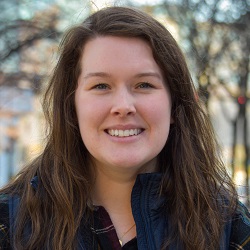
Program Support Specialist
BS Business Administration (Emphasis in Administrative Systems and Management), Concord University
Gretchen Reese joined the U.S. DOT Volpe Center in 2020. She provides support to specific projects within the division such as: the Freight and Fuel Optimization Tool (FTOT, the Resilience and Disaster Recovery (RDR) tool suite, the U.S. DOT Energy Resource and Efficiency Program (EREP), along with other sustainability and resilience projects. Reese provides support to various grant programs across the U.S. DOT Volpe Center. She is also involved with the Capability Maturity Model Integration (CMMI) activities at the U.S. DOT Volpe Center and is a certified CMMI Associate.
Before joining the U.S. DOT Volpe Center, Reese completed two years in the Peace Corps serving in northern Uganda. During her service in Uganda, she worked with her host organization to perform needs assessments and introduce projects to address the community’s identified needs. Reese’s main project during service was perma-culture and nutrition to address the lack of availability and access to fresh foods during the prolonged dry season of the region. Other projects she worked on include: malaria prevention outreach, farming as a business facilitations, community health events, literacy promotion in village schools, and assisting local coffee growers form co-ops for exportation.
Mike Scarpino
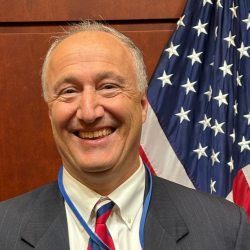
Principal Technical Advisor for Ground Vehicle Fuels, Electrification, and Deployment
BS Mechanical Engineering, University of Maine
Michael (Mike) Scarpino serves as part of our team of principal technical advisors who work across the Center to identify emerging transportation technologies, conduct analyses and assessments on topics of national significance, and explore new opportunities in response to evolving national concerns. He serves as the principal technical advisor for ground vehicle alternative fuels, electrification, and deployment
Shelbi Small
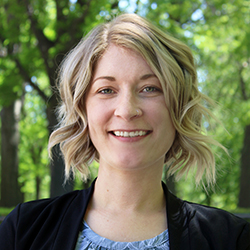
Environmental Protection Specialist
BS Natural Resource Management, Grand Valley Statue University
Shelbi Small is an environmental protection specialist in the Energy Analysis and Sustainability Division and has been with the U.S. DOT Volpe Center since November 2022. She has five years of previous experience with the Bureau of Indian Affairs in assisting with natural resource and renewable energy projects on tribal lands as well as grants management and project oversight.
Small is working with the Joint Office of Energy and Transportation to aid states regarding the National Electric Vehicle Infrastructure (NEVI) program. Funds have been allocated to states as of 2022 to begin build out of their electric vehicle (EV) charging infrastructure to meet the EV infrastructure goals through the Infrastructure Investment and Jobs Act. She is also assisting in the formation of a Tribal Engagement Strategy for NEVI and future funding opportunities; this strategy will lay out the goals and objectives for the Joint Office to provide technical assistance to tribal nations regarding EV infrastructure projects. Small is also supporting FHWA's future funding opportunities and programs.
Erika A. Sudderth, PhD
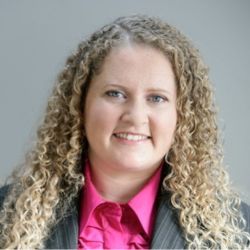
Principal Technical Advisor for Sustainable Federal Operations and Facility Resilience
PhD Plant Ecology, Harvard University
BS Biochemistry and Cell Biology (Minor in Environmental Studies), University of California, San Diego
Erika Sudderth serves as part of our team of principal technical advisors who work across the Center to identify emerging transportation technologies, conduct analyses and assessments on topics of national significance, and explore new opportunities in response to evolving national concerns. Sudderth serves as the principal technical advisor for sustainable federal operations and facility resilience.
Read more about Erika Sudderth
Kim Washington
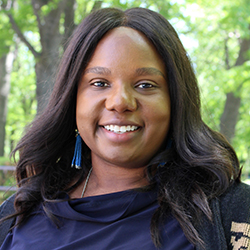
Environmental Protection Specialist
MS Environmental Management, University of Maryland University College
BS Civil Engineering, Morgan State University
Kim Washington is a career public service professional with more than 15 years of experience as an environmental engineer. Her areas of expertise are program management, sustainability, environmental compliance, and process improvement.
The City of Rock Island Industrial Pretreatment Excellence Award, National Environmental and Sustainability Management System implementation, and a Potable Water Per- and Polyfluoroalkyl Substances (PFAS) Screening Program were some of her achievements before joining the U.S. DOT Volpe Center in October 2022.
Washington’s transition into an Environmental Protection Specialist role has been seamless with the work she’s contributed to the U.S. DOT Energy Resource and Efficiency Program (PFAS) identification, sustainability performance dashboarding, Energy Management System implementation, and metering.
Amity Wilczek, PhD
Statistician
PhD Organismic and Evolutionary Biology, Harvard University
AB Biology, University of Chicago
Amity Wilczek, PhD joined the U.S. DOT Volpe Center’s Energy Analysis and Sustainability Division in 2021. She provides analytical and statistical expertise for a variety of projects, drawing on her background in natural and environmental sciences, mathematical and statistical modeling, and science communication and education. At the U.S. DOT Volpe Center, Wilczek’s work to date has focused on resilience (with the Energy and Resource Efficiency Program and FAA).
Prior to joining the U.S. DOT Volpe Center, Wilczek spent more than 20 years working as a researcher and educator. Her work on plant responses to changing environments has appeared in many scientific journals including Science, Proceedings of the National Academy of Sciences, Ecology, American Naturalist, and Philosophical Transactions of the Royal Society. Wilczek’s teaching career started at Harvard and Brown before transitioning to Deep Springs College in eastern California, where she served for more than 10 years as Herbert Reich Chair of Natural Sciences, Academic Dean, and Vice President.
Kevin Zhang, PhD

Mathematical Statistician
PhD Operations Research, Massachusetts Institute of Technology
BA Mathematics, BS Statistics, Yale
Kevin Zhang, PhD joined the U.S. DOT Volpe Center in 2020 as a data scientist in the Energy Analysis and Sustainability Division. He provides technical support on two open-source software tools: the Resilience and Disaster Recovery (RDR) Tool Suite, for FHWA and OST, and the Freight and Fuel Transportation Optimization Tool (FTOT) for FAA. Zhang also helps support technical modeling, machine learning, and data strategy projects for Department of Energy, Intelligent Transportation Systems Joint Program Office, and the Highly Automated Systems Safety Center of Excellence. He co-leads the U.S. DOT Volpe Center’s Geospatial and Data Visualization Community of Practice.
Prior to joining the U.S. DOT Volpe Center, Zhang received a doctorate in operations research at MIT. His research focused on developing analytical models for the real-time calibration of traffic simulators. He also worked previously as an operations research analyst at an analytics consulting firm in Boston.
